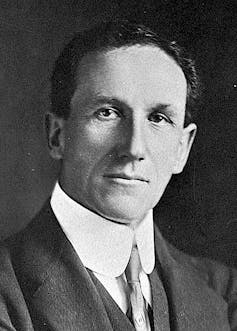with NSW facing 3 byelections, could the parliament be suspended to avoid government defeat?
- Written by Anne Twomey, Professor of Constitutional Law, University of Sydney

The announcement that by-elections will be held for the NSW parliamentary seats currently held by Gladys Berejiklian, Andrew Constance and John Barilaro has led to speculation about whether the government could be defeated in parliament pending these by-elections and there could be an early election.
This raises questions about whether parliament could be “prorogued” – suspended – to prevent any defeat, and how the fixed-term parliament system works in New South Wales.
Avoiding a vote of no confidence by proroguing parliament
The Coalition government in New South Wales holds a very slim majority. While it is relatively unlikely the Coalition would lose these seats in byelections, there is also the question of whether it could lose office due to a vote of no confidence being passed in the period between members resigning and byelections being held to fill the seats.
One way of avoiding such a risk is for parliament to be “prorogued” until the byelections are held. Prorogation ends a session of parliament, stopping it from sitting until it is summoned for a new session. There are a number of contrasting precedents about the use of prorogation in similar circumstances.
Read more: Boris Johnson has suspended the UK parliament. What does this mean for Brexit?[1]
In 1911, the NSW Labor government lost its majority when two of its members suddenly resigned. Acting Premier William Holman asked the lieutenant-governor to prorogue parliament until the byelections were held. The lieutenant-governor refused[2].
Holman then resigned on behalf of the government, but the leader of the opposition could not form a government that held the confidence of the lower house either. The lieutenant-governor then reinstated Holman and granted him the prorogation.
In 1971, in Western Australia, the Tonkin Labor government lost its majority when the speaker died. The premier advised the governor to prorogue parliament pending the byelection. The governor consulted the chief justice and also sought advice from the British government. The British foreign secretary replied that the decision fell within the governor’s personal discretion (also known as a “reserve power”). The governor agreed he was not obliged to act upon the premier’s advice to prorogue, but decided to grant the prorogation because an election had recently been held, so a fresh one was not justified, and any loss of confidence may be temporary. It was better to prorogue and see where confidence lay after the byelection.
In 2017, when several members of the House of Representatives were disqualified for holding dual citizenship, the Turnbull government slipped into minority. Turnbull later revealed in his book, A Bigger Picture, that the governor-general, Sir Peter Cosgrove,
[…] volunteered that I shouldn’t expect him to agree to proroguing the parliament if I asked him to do so pending the resolution of the citizenship cases or by-elections that followed.
Turnbull noted this was not an “unconsidered remark”, as the governor-general had also given the same warning to the attorney-general. Instead of advising the prorogation of parliament, Turnbull persuaded the speaker to delay the house sitting for one week.
While the legitimacy of advice to prorogue parliament can be controversial, and has even been successfully challenged[3] in the United Kingdom, it remains appropriate to prorogue parliament to defer a vote on the issue of confidence while a critical byelection is pending.
This is because confidence should be determined by a fully constituted lower house – not one with vacant seats. It is such an important matter that all electorates should be represented, if possible, and a short delay until a byelection is promptly held is reasonable.
In any case, there is an easier alternative, as the Turnbull example showed. That is for the scheduled sitting of parliament to be deferred, as occurred in NSW during September 2021 on health advice during the COVID-19 pandemic. This can occur without the need to prorogue parliament. But as the sitting of the Legislative Assembly has already been deferred since June, the pressure for governmental accountability to Parliament may exceed the political convenience of further delay.
Read more: ICAC is not a curse, and probity in government matters. The Australian media would do well to remember that[4]
What if parliament sits and a vote of no confidence in the government is passed?
New South Wales has fixed-term parliaments, with the next election due on March 25 2023[5]. However, there is an exception[6] if the Legislative Assembly passes a vote of no confidence in the government.
Because it is such an important matter, three days’ notice must be given of such a motion before it is held. This is intended to allow each side to ensure all its members can attend.
If a vote of no confidence in the government is passed, there follows a period of eight days during which the government can seek to regain confidence. Alternatively, the governor can appoint a new government, which would also need to receive a vote of confidence by the house.
If no government receives a vote of confidence in that eight-day period, the governor may dissolve parliament and an early election will then be held.
So far, no early elections have been held in NSW under this system and it is unlikely to occur in the current circumstances.
References
- ^ Boris Johnson has suspended the UK parliament. What does this mean for Brexit? (theconversation.com)
- ^ lieutenant-governor refused (quadrant.org.au)
- ^ successfully challenged (www.theguardian.com)
- ^ ICAC is not a curse, and probity in government matters. The Australian media would do well to remember that (theconversation.com)
- ^ March 25 2023 (www.elections.nsw.gov.au)
- ^ exception (www.austlii.edu.au)
















